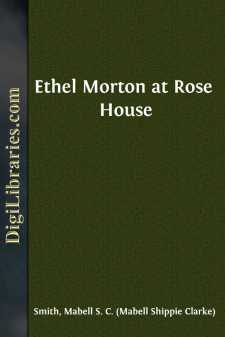Categories
- Antiques & Collectibles 13
- Architecture 36
- Art 48
- Bibles 22
- Biography & Autobiography 815
- Body, Mind & Spirit 144
- Business & Economics 28
- Children's Books 18
- Children's Fiction 14
- Computers 4
- Cooking 94
- Crafts & Hobbies 4
- Drama 346
- Education 58
- Family & Relationships 59
- Fiction 11835
- Games 19
- Gardening 17
- Health & Fitness 34
- History 1378
- House & Home 1
- Humor 147
- Juvenile Fiction 1873
- Juvenile Nonfiction 202
- Language Arts & Disciplines 89
- Law 16
- Literary Collections 686
- Literary Criticism 179
- Mathematics 13
- Medical 41
- Music 40
- Nature 180
- Non-Classifiable 1768
- Performing Arts 7
- Periodicals 1453
- Philosophy 65
- Photography 2
- Poetry 896
- Political Science 203
- Psychology 44
- Reference 154
- Religion 515
- Science 126
- Self-Help 85
- Social Science 83
- Sports & Recreation 34
- Study Aids 3
- Technology & Engineering 59
- Transportation 23
- Travel 463
- True Crime 29
Our website is made possible by displaying online advertisements to our visitors.
Please consider supporting us by disabling your ad blocker.
Ethel Morton at Rose House
Categories:
Description:
Excerpt
CHAPTER I
ROGER'S IDEA
For the fortieth time that afternoon, it seemed to Ethel Brown Morton and her cousin, Ethel Blue, they untangled the hopelessly mixed garlands of the maypole and started the weavers once more to lacing and interlacing them properly.
"Under, over; under, over," they directed, each girl escorting a small child in and out among the gay bands of pink and white which streamed from the top of the pole.
May Day in New Jersey is never a certain quality; it may be reminiscent of the North Pole or the Equator. This happened to be the hottest day of the year so far, and both Ethels had wiped their foreheads until their handkerchiefs were small balls too soaked to be of any further use. But they kept on, for this was the first Community Maypole that Rosemont ever had had, and the United Service Club, to which the girls belonged, was doing its part to make the afternoon successful. Helen, Ethel Brown's sister, and Margaret Hancock, another member of the Club, were teaching the younger children a folk dance on the side of the lawn; Roger Morton, James Hancock and Tom Watkins were marshalling a group of boys and marching them back and forth across the end of the grass plot nearest the schoolhouse. Delia Watkins, Tom's sister, and Dorothy Smith, a cousin of the Mortons, were going about among the mothers and urging them to let the little ones take part in the games. Everybody was busy until dusk sent the small children home and the caretaker came to uproot the pole and to shake his head ruefully over the condition of the lawn whose smoothness had been roughened by the tread of scores of dancing feet.
It was while the Club members were sitting on the Mortons' veranda, resting, that Helen, who was president of the Club, called them to order.
"Saturday afternoon is our usual time of meeting," she began, "and no one can say that we haven't put in a solid afternoon of service."
Groans as one and another shifted a cramped position to another more restful for weary feet confirmed her statement.
"What I want to say now is that it's time for us to be thinking up some more service work. We are all studying pretty hard so we don't want to undertake anything that will use up our out-of-door time too much, but we haven't anything in prospect except helping with the town Fourth of July celebration, over two months away, so we might as well be planning something else."
"Do I understand, Madam President," asked Roger, "that the chief officer of this distinguished Club hasn't any ideas to suggest?"
"The chief officer is so tired that not even another glass of lemonade--thank you, Tom--can stir her gray matter."
"Hasn't anybody else any ideas?"
Silence greeted the question.
"I seem to remember boasts that ideas never would fail this brilliant group," jeered Roger.
"There were some such remarks," James recalled meditatively; "and I remember that you prophesied that the day would come when we'd call on you for information about some stupendous scheme of yours that was literally as big as a house....




